Acupuncture for Dehydration Symptoms and Heat Exhaustion Recovery
Photo by Lola Russian from Pexels
A Traditional Chinese Medicine Perspective on Restoring Fluid Balance and Homeostasis
Happy Friday and the welcoming of cooler weather! This past month, the risk of dehydration and heat exhaustion became more prevalent—particularly for individuals who are active, elderly, or have underlying health conditions. While conventional medicine focuses on fluid replacement and rest, Traditional Chinese Medicine (TCM) offers a unique and complementary approach to preventing and recovering from heat-related conditions. Through acupuncture and herbal therapies, TCM supports the body’s fluid metabolism, internal cooling mechanisms, and energy balance, helping restore homeostasis when the body becomes overheated and depleted.
UNDERSTANDING DEHYDRATION AND HEAT EXHAUSTION IN TCM
In TCM, body fluids (Jin-Ye) are vital for nourishing organs, moistening tissues, and maintaining the balance between Yin (cooling, moistening energy) and Yang (warming, active energy). When a person becomes dehydrated or suffers from heat exhaustion, it is often viewed as a Yin deficiency or excess internal heat, which can deplete fluids and lead to imbalances in the Heart, Spleen, Lung, and Kidney systems - all yin organs that need fluid nourishment.
Common symptoms of dehydration or heat exhaustion—such as dizziness, fatigue, thirst, muscle cramps, dry mouth, and rapid heartbeat—are signs of Qi (vital energy) and fluid deficiency, with potential heat invasion disrupting the body’s natural regulation.
HOW ACUPUNCTURE HELPS RESTORE BALANCE AFTER HEAT STRESS
Acupuncture works by stimulating specific meridian points to promote the free flow of Qi and fluids, helping the body naturally re-regulate temperature, rehydrate tissues, and rebalance internal systems.
1. Regulates Thermoregulation and Autonomic Function
Acupuncture helps regulate the autonomic nervous system, which controls sweat production, circulation, and body temperature. A 2018 study published in Autonomic Neuroscience found that acupuncture can influence sympathetic nerve activity and reduce excessive heat responses by modulating the hypothalamus.
Here are some examples of the variety of points we use for heat exhaustion;
LI11 (Quchi): Clears internal heat, promotes cooling
DU14 (Dazhui): Regulates heat and boosts immune defense
PC6 (Neiguan): Helps with dizziness, nausea, and heart palpitations
2. Supports Fluid Metabolism
In TCM, the Spleen and Kidney play crucial roles in fluid transformation and distribution. If these organs are weak, the body may struggle to absorb and retain hydration effectively.
Acupuncture supports these systems by enhancing digestive Qi and improving fluid uptake and distribution. A 2020 review in Evidence-Based Complementary and Alternative Medicine showed that acupuncture improves gastric motility and water-electrolyte absorption through vagus nerve stimulation.
Key Points:
ST36 (Zusanli): Strengthens digestion, replenishes Qi and fluids (great for stamina)
SP6 (Sanyinjiao): Nourishes Yin and supports Kidney and Spleen balance (great for hormone balancing)
KID3 (Taixi): Reinforces Kidney Yin to restore moisture and cooling (great for increasing fluids especially in menopausal women)
3. Reduces Inflammation and Cellular Stress
Notice how your inflammation increases in the summer months? Heat exhaustion can lead to oxidative stress and systemic inflammation, especially when exposure is prolonged. Studies such as the one in Oxidative Medicine and Cellular Longevity (2017) suggest that acupuncture reduces inflammatory cytokines (like IL-6 and TNF-α) and oxidative markers, helping cellular systems recover after heat stress.
TRADITIONAL HERBAL SUPPORT FOR REHYDRATION
In conjunction with acupuncture, TCM practitioners often use herbs that replenish fluids and clear internal heat:
Sheng Di Huang (Rehmannia Root): Cools blood and nourishes Yin
Mai Men Dong (Ophiopogon): Generates fluids and moistens dryness
Wu Wei Zi (Schisandra): Astringes sweating and supports fluid retention
Huang Lian (Coptis): Clears heat from the Heart and Stomach
Herbal formulas are tailored based on individual symptoms, constitution, and severity of heat exposure. Book an appointment with Dr. Alex to learn more!
LIFESTYLE AND RECOVERY TIPS IN TCM
To recover from dehydration or prevent heat exhaustion, TCM recommends:
Avoid heavy or greasy foods, which burden the Spleen and slow fluid transformation
Eat hydrating foods like watermelon, cucumber, mung beans, and pear
Drink room-temperature fluids (iced drinks may impair digestion in TCM theory)
Rest during the hottest parts of the day, ideally between 11 a.m. and 3 p.m.
Use cooling herbal teas (e.g., chrysanthemum, lotus leaf) to gently dispel internal heat
As you can see, acupuncture and Chinese herbs are a sophisticated way of balancing the body, offering a gentle, effective, and scientifically supported approach to managing the effects of dehydration and heat exhaustion. By targeting specific meridians, supporting organ function, and enhancing fluid metabolism, acupuncture helps the body recover faster and more thoroughly—restoring the natural balance between Yin and Yang. Especially in the heat of summer, this holistic care can be a vital part of your wellness toolkit!

